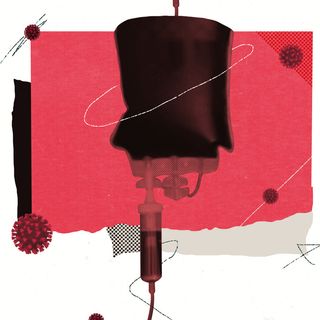Scientists from the Netherlands were able to detect traces of the novel coronavirus on March 5 at a wastewater treatment plant in Kaatsheuvel, the town where the first Dutch case of Covid19 was reported four days earlier. Now, scientists are exploring the prospect of wastewater analysis acting as an early warning system for the infection.
The human body sheds traces of any virus that’s in our systems through stool, so as more and more people get infected, the virus enters the sewage system. Monitoring the levels of the virus in the sewage water can provide insights into the magnitude of infected patients in the population, said researchers from the KWR Water Research Institute in Netherlands.
Dutch researchers are now in the process of analysing wastewater in different parts in the country in the hope that will help them gain a better estimate about the scale of the spread. Because a significant chunk of individuals infected by Covid19 are asymptomatic, symptom-based testing of patients might fall short of accurately estimating what portion of the population is affected. Wastewater analysis, on the other hand, has the potential to determine this scale and serve as an early warning sign to restrict movements of local populations and contain the spread of the infection in the nick of time — before it reaches the stage of widespread community transmission.
Related on The Swaddle:
Blood Transfusions from Recovered Coronavirus Patients May Provide Effective Treatment, Doctors Say
A team of researchers in the UK are also developing a device based on wastewater-based epidemiology to trace the virus, Daily Mail reported. The team is developing a paper-based test to filter pathogens from wastewater to detect the presence of Covid19.
“In the case of asymptomatic infections in the community or when people are not sure whether they are infected or not, real-time community sewage detection through paper analytical devices could determine whether there are Covid19 carriers in an area to enable rapid screening, quarantine, and prevention… We foresee that the device will be able to offer a complete and immediate picture of population health once this sensor can be deployed in the near future,” Dr. Zhugen Yang, lecturer in Sensor Technology from Cranfield University, who is part of this team, said.
Using wastewater analysis in the past, the Dutch National Institute for Public Health and the Environment had traced norovirus, antibiotic-resistant bacteria and measles in wastewater. “The detection of the virus in sewage, even when the Covid19 prevalence is low, indicates that sewage surveillance could be a sensitive tool to monitor the circulation of the virus in the population. That could complement current clinical surveillance, which is limited to the Covid19 patients with the most severe symptoms,” the Dutch scientists told The Week.




